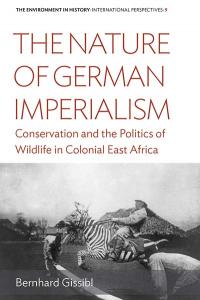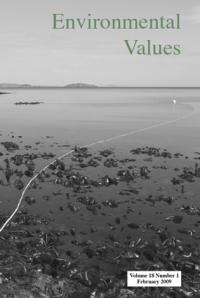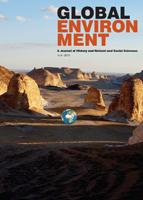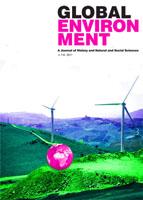Show search results for
"The Value of Health in the Writings of H.D. Thoreau"
This article analyses Thoreau’s thoughts on health based on his writings, emphasising some features that fit well with contemporary debates in the philosophy of medicine.
"Environmental Change and Chronic Famine in Manbhum, Bengal District, 1860-1910"
The present paper examines the chronic occurrence of famine in Manbhum, Bengal District, after the 1860s due to environmental degradation as a result of colonial intervention and an increase in commodity production and the expansion of monoculture.
"Looking Back to Move Forward: Using History to Understand the Consensual Forest Management Model in the Terai, Nepal"
This paper attempts to explore the historic impacts of forest politics and policy on social equity and ecology in Nepal’s Terai region. It is suggested that past forest politics and policies may continue to influence the forest bureaucracy in Nepal and, hence, shape present-day forest management in the Terai.
"Agriculture, Health, Environment: Interview with Piero Bevilacqua," interview by Idamaria Fusco
The interview with Piero Bevilacqua touches on a broad range of subjects: From the use of pesticides to the “Green Revolution”; from GMOs to biodynamic and biological agriculture, and the respect of biodiversity; from modern farming’s wasteful use of water to Common Agricultural Policy with its nonsustainable exploitation of farmland.
"Colonial Famine Relief and Development Policies: Towards an Environmental History of Northern Ghana"
Using Northern Ghana as a case study, this paper questions the usefulness of regional data for understanding food insecurity, and shows that the supposedly novel ideas of the present in fact have a strong colonial lineage.
"World Water Day 2012. 'Water and Food Security: The World is Thirsty Because We are Hungry'"
The article reflects on how to feed a growing world population in a context of natural resource scarcity and considers the 2012 World Water Day as a means to open an international debate in order to identify strategic choices capable of combining, globally and locally, the objective of food security with that of water resource protection.
"Environmental Experiences of Chinese People in the Mid-Nineteenth Century Australian Gold Rushes"
Fei Sheng analyzes the ecological factors in China that spurred migration to Australia at a time when the discovery of gold as a natural resource made the country an ideal migration destination. He shows how Chinese migrants applied their environmental experience in a white settler colony.







